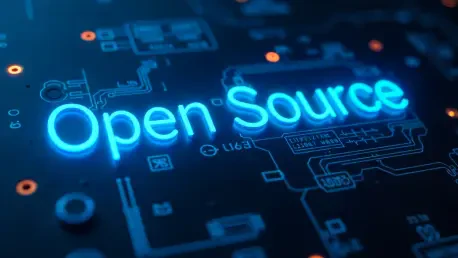Today, we’re thrilled to sit down with Vijay Raina, a renowned expert in enterprise SaaS technology and software design. With years of experience in shaping cutting-edge tools and providing thought leadership in software architecture, Vijay brings a unique perspective on the world of open source software. In this conversation, we dive into the evolution of critical open source projects, the immense challenges faced by maintainers, the pervasive impact of these tools on global technology, and the persistent gap in corporate support for such initiatives. Join us as we explore these vital topics through Vijay’s insightful lens.
How did your journey with enterprise software lead you to focus on the significance of open source projects?
My journey started with a fascination for scalable systems and how software can solve complex business problems. Early on, I realized that open source projects are the backbone of modern tech infrastructure. They’re not just tools; they’re communities and ecosystems that drive innovation. Working on SaaS platforms, I saw how much we relied on open source for everything from data transfer to security protocols. This dependency inspired me to advocate for better support and understanding of these projects, as they often power the very solutions enterprises take for granted.
What do you think has been the most transformative aspect of open source software over the past few decades?
I’d say it’s the sheer scale of adoption and collaboration. Decades ago, open source was a niche concept, often seen as a hobbyist’s domain. Now, it’s embedded in virtually every piece of technology we touch—phones, servers, even cars. The ability for thousands of developers worldwide to contribute to a single project has created robust, reliable tools that rival proprietary software. This collaborative spirit has transformed how we build and maintain software, making innovation accessible to everyone, not just big corporations.
Can you share your thoughts on the personal impact for developers who maintain widely-used open source tools?
It’s a double-edged sword. On one hand, there’s immense pride in knowing your work powers billions of devices or critical systems worldwide. Imagine crafting a small utility that ends up in every smartphone or gaming console—that’s a legacy few can claim. On the other hand, the responsibility can be crushing. Maintainers often work alone or in small teams, handling everything from bug fixes to user support, with little recognition or resources. It’s a deeply personal commitment, and the emotional toll of being indispensable yet under-supported is something many struggle with.
How would you describe the daily challenges faced by maintainers of critical open source projects?
The daily grind for maintainers is relentless. They’re juggling code updates, reviewing contributions, fixing bugs, and often dealing with a flood of user queries or complaints. Many do this in their spare time or with minimal funding, which means balancing it with day jobs or personal life. There’s also the constant pressure to keep the project secure and relevant, especially as new technologies or regulations emerge. It’s like running a small business with global reach, but without the budget or staff to match.
What’s behind the metaphor of an elephant balancing on a beach ball held by ants when it comes to open source software?
That metaphor captures the precarious state of our tech ecosystem. The elephant represents the massive global IT infrastructure—trillions of dollars in systems and services. The beach ball is the open source software that supports it, and the ants are the individual maintainers holding it all up. It illustrates how fragile this setup is; if just a few key maintainers burn out or step away, critical projects could falter, potentially disrupting entire industries. The weight of responsibility on these individuals is disproportionate to the support they receive.
Why do you think large corporations are often hesitant to invest in open source projects, despite their heavy reliance on them?
It often comes down to a lack of awareness at the executive level. Many C-suite leaders don’t fully grasp how much their operations depend on open source, or they see it as a free resource that doesn’t require investment. There’s also a cultural gap—open source doesn’t fit neatly into traditional business models focused on proprietary control. While some companies do contribute, it’s usually reactive, like stepping in after a security scare, rather than proactive. They miss the strategic value of sustaining these projects as a core part of their tech stack.
Can you paint a picture of what ideal corporate support for open source projects would look like?
Ideal support would start with recognition—acknowledging open source as a critical asset in corporate strategy. This means allocating budgets for direct funding, sponsoring maintainers, or hiring dedicated teams to contribute code and resources. Beyond money, it’s about building partnerships, like offering legal or marketing support to help projects grow sustainably. It’s also about education—training employees to contribute back to the community rather than just consuming. Imagine a world where every tech giant has a department dedicated to open source stewardship. That’s the kind of systemic change we need.
What is your forecast for the future of open source software and its role in global technology?
I believe open source will only become more integral to global tech, especially as emerging fields like AI and IoT continue to grow. We’re likely to see an explosion of new projects, but also more strain on maintainers unless systemic support improves. I’m optimistic that increased awareness, driven by reports and advocacy, will push more companies to invest. Governments might also step in with policies to protect and fund critical projects, especially as cybersecurity becomes a bigger concern. The challenge will be balancing growth with sustainability, ensuring the community doesn’t buckle under its own success. I think the next decade will be a turning point for how we value and support open source.









